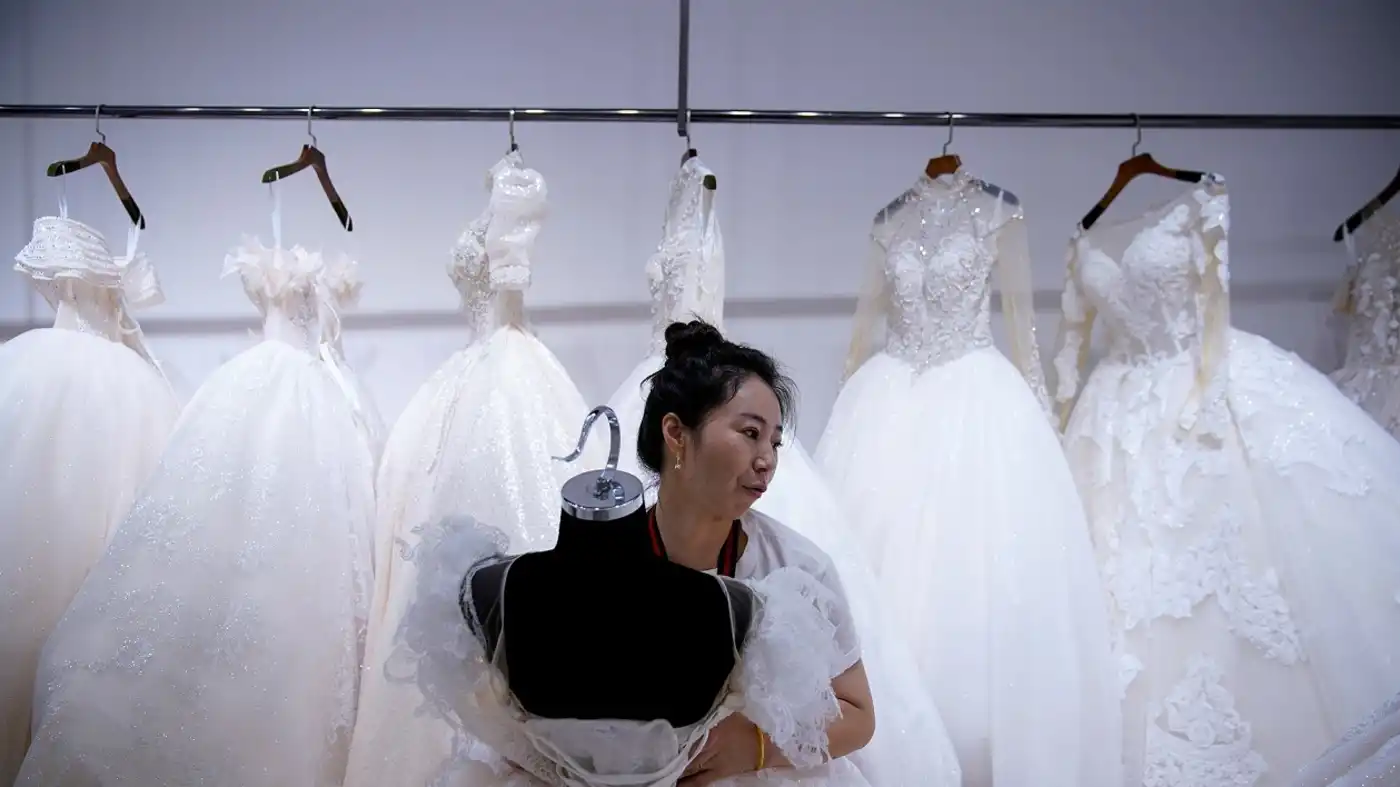More and more highly educated Chinese women are advocating "single-mindedness".
One such woman, Ms. Sai Van Nhu, believes that marriage is an unfair practice.
"Whether extremely successful or just ordinary, women are still the ones who have to sacrifice the most in the house," Ms. Sai told Reuters at a cafe in Xi'an city, China.
“Many people who got married in the previous generation, especially women, sacrificed themselves and their careers without having the happy life they expected. Having a good life for yourself was difficult enough,” she added.

Delayed or absent marriage and falling birth rates could pose a threat to China's demographic goals
China's single population over the age of 15 hit a record 239 million in 2021, according to official data. But a more optimistic sign is that the number of marriage registrations in 2023 is expected to increase slightly, after a historic low in 2022.
According to a 2021 survey, among about 2,900 unmarried urban young people, up to 44% of women expressed their intention to remain single for life.
In addition, the trend of delaying marriage is becoming more widespread. Accordingly, the average age of first marriage increased from 24.89 in 2010 to 28.67 in 2020, according to census data. The figure reached 30.6 for men and 29.2 for women in 2023 in Shanghai, China, according to statistics from the city.
Many online communities have sprung up to help single women find like-minded friends. Posts with the hashtag “No marriage, no children” by influential women (usually in their 30s and 40s) on the Instagram-like social network Xiaohongshu regularly receive thousands of likes.
On another social network, a topic supporting the trend of not getting married has 9,200 members. A forum dedicated to "singleism" alone has 3,600 members, mainly discussing collective retirement plans and other topics.
Hard to find a worthy person
Many of the women interviewed said the main factors that led them to decide to stay single and childless included a desire to explore themselves, disillusionment with the patriarchal nature of Chinese men, and a lack of "worthy" partners.
Gender equality also plays an important role. All women said it was difficult to find a man who valued women's autonomy and wanted to share equally the responsibilities of household chores.
“There are many highly educated women, but there are few highly educated men,” said Shu Xiaoling, a sociology professor at the University of California. The decades-long one-child policy left China with 32.3 million more men than women by 2022, according to official data.
Last year, Chinese President Xi Jinping stressed the need to foster a new culture of marriage and childbearing as China's population fell for two consecutive years and the birth rate hit a historic low.
Although some analysts believe the number of lifelong singles will not increase exponentially in the future, delayed marriage timing and falling birth rates are likely to pose a threat to China's demographic goals.
Source link


![[Photo] Panorama of the Opening Ceremony of the 43rd Nhan Dan Newspaper National Table Tennis Championship](https://vphoto.vietnam.vn/thumb/1200x675/vietnam/resource/IMAGE/2025/5/19/5e22950340b941309280448198bcf1d9)


![[Photo] General Secretary To Lam attends the conference to review 10 years of implementing Directive No. 05 of the Politburo and evaluate the results of implementing Regulation No. 09 of the Central Public Security Party Committee.](https://vphoto.vietnam.vn/thumb/1200x675/vietnam/resource/IMAGE/2025/5/19/2f44458c655a4403acd7929dbbfa5039)
![[Photo] President Luong Cuong presents the 40-year Party membership badge to Chief of the Office of the President Le Khanh Hai](https://vphoto.vietnam.vn/thumb/1200x675/vietnam/resource/IMAGE/2025/5/19/a22bc55dd7bf4a2ab7e3958d32282c15)
![[Photo] Close-up of Tang Long Bridge, Thu Duc City after repairing rutting](https://vphoto.vietnam.vn/thumb/1200x675/vietnam/resource/IMAGE/2025/5/19/086736d9d11f43198f5bd8d78df9bd41)

























![[Photo] Prime Minister Pham Minh Chinh inspects the progress of the National Exhibition and Fair Center project](https://vphoto.vietnam.vn/thumb/1200x675/vietnam/resource/IMAGE/2025/5/19/35189ac8807140d897ad2b7d2583fbae)































































![[VIDEO] - Enhancing the value of Quang Nam OCOP products through trade connections](https://vphoto.vietnam.vn/thumb/402x226/vietnam/resource/IMAGE/2025/5/17/5be5b5fff1f14914986fad159097a677)





Comment (0)